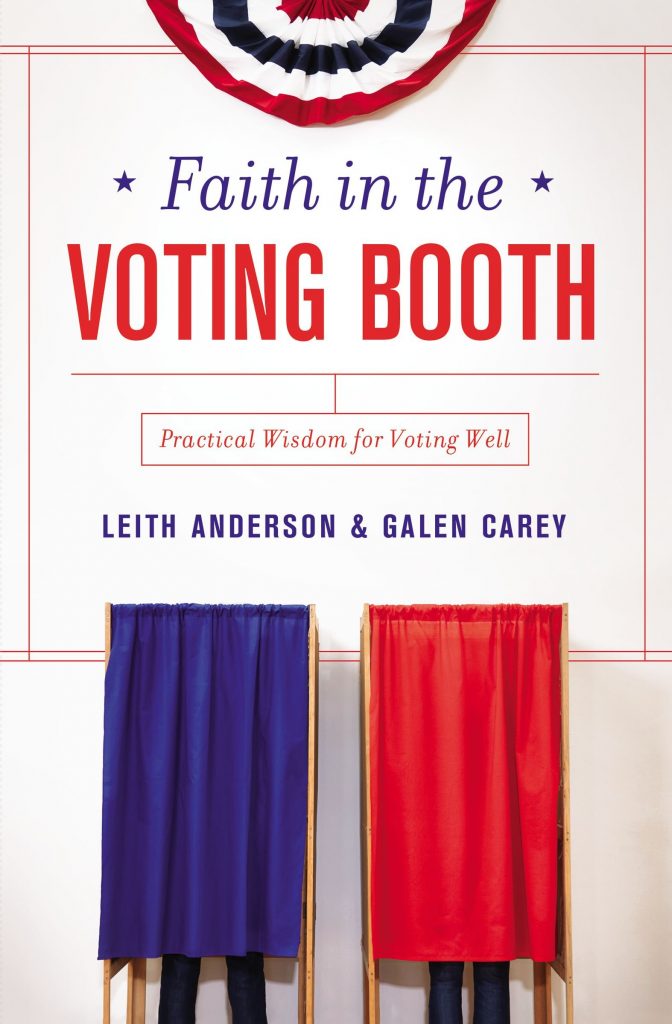 How should we vote in upcoming elections? To help us answer this question, Dr. Tkach recommends the newly published book Faith in the Voting Booth: Practical Wisdom for Voting Well by National Association of Evangelicals leaders Leith Anderson and Galen Carey. Here is a review of the book from GCI member Terry Akers (who works in GCI’s Home Office):
How should we vote in upcoming elections? To help us answer this question, Dr. Tkach recommends the newly published book Faith in the Voting Booth: Practical Wisdom for Voting Well by National Association of Evangelicals leaders Leith Anderson and Galen Carey. Here is a review of the book from GCI member Terry Akers (who works in GCI’s Home Office):
This book is a fine resource designed to guide the Christian in matters pertaining to faith and politics. Wisely, it does not tell you how to vote, rather, it offers thoughtful biblical insight that helps the reader affirm their positions on the issues in the light of their faith before voting and educates voters concerning the pitfalls of being influenced by campaign ads and political rhetoric that play on their fears and anger.
The authors show the reader how to vote in a way that is consistent with Scripture but puts the broader focus on the importance of prayer before casting their vote. The book offers a refreshing overview to the way Christian faith should engage the political process, dispelling numerous myths and media-generated false impressions along the way. Not all evangelicals, for example, are white, Republican, and live in the suburbs.
This helpful guidebook engages specific issues including poverty, diversity, marriage and families, immigration, taxes, prisons, foreign policy, and creation care. It does not, however, attempt to influence your vote, rather, it informs you on how to vote for yourself. The book is nonpartisan—it does not identify with any party or agenda. The overall emphasis is on Scripture and prayer with the goal of helping Christian make informed and wise choices.
The content is thoughtful and respectful throughout, acknowledging the diversity and range of political views among Christians. It also expresses the theological differences within the Body of Christ, but celebrates their overall unity. Interestingly, it shows that Christians in general, contrary to common assumptions, are not obsessed with politics—their main focus is on Christ.
This book discloses the tendency among many believers to make up their minds and then pray for God’s implementation, rather than submitting to the mind of Christ and God’s will by praying for wisdom and being open to surprise. It shows how to interpret politics by the Bible instead of the other way around. Most importantly, it teaches believers how to think for themselves.
The authors are clear on the question, “Does evangelical mean political?” They give a firm “no” answer here, noting that there are 600 million evangelicals in 129 countries and the vast majority are not white, Republican, or Democrat. They are adamant in their assessment that evangelicalism is centered in faith, not politics.
Anderson and Carey reveal in this book that believers are not commanded to participate or abstain from politics, demonstrating that the Bible offers wisdom that we can apply to political questions. They provide a thoughtful and commonsense approach to these complex and potentially divisive subjects, daring to actually talk about “religion and politics” in an engaging and stimulating way. Probably the most helpful and encouraging chapter in the book is the last one, titled “A Call for Civility.”


